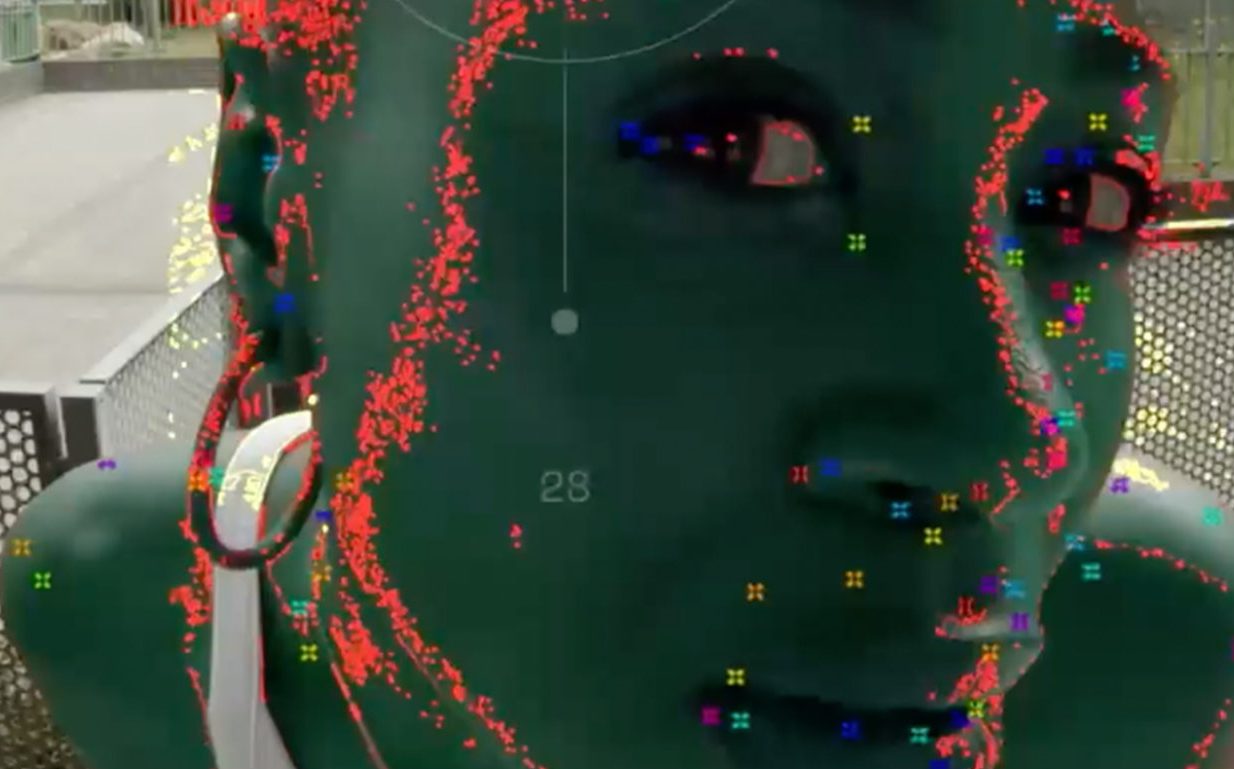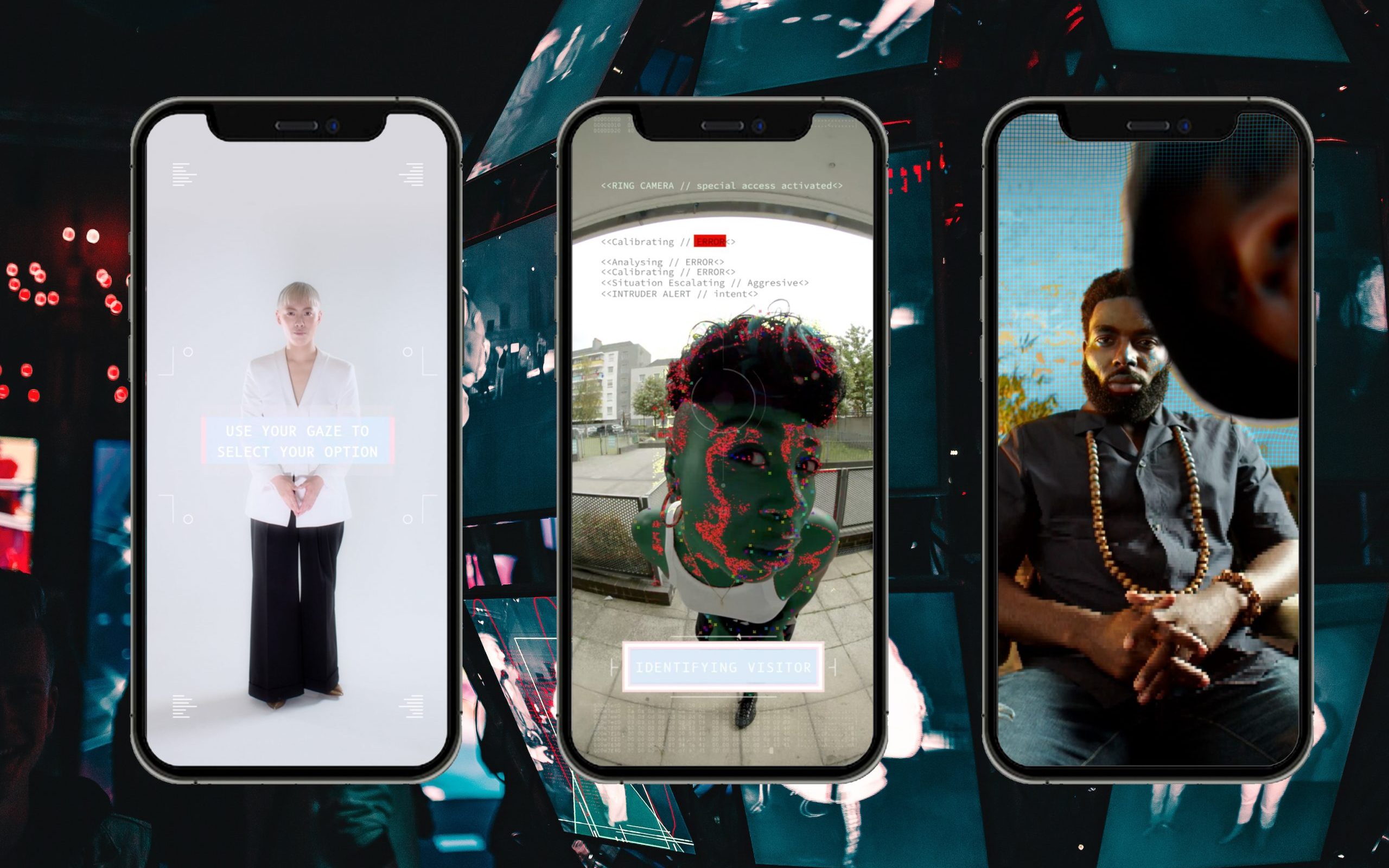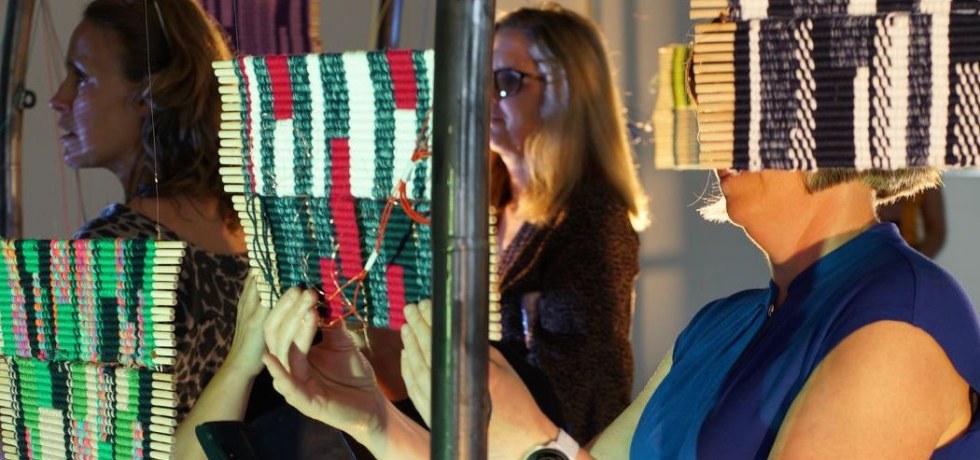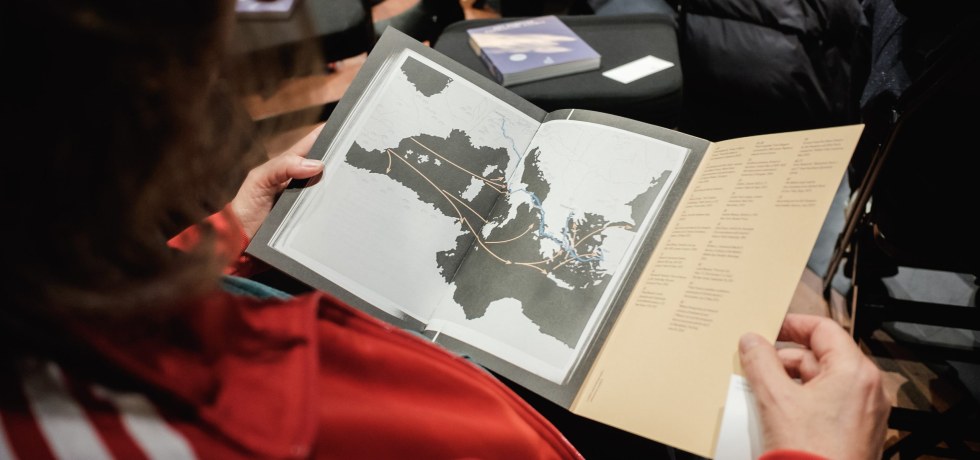Consensus Gentium
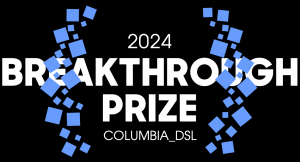
“People think they can trust their State, that the State is there to protect them. But I have never had that sense of trust for the government. My work is about individualism and activating one’s personal agency. This is because, as I always say, the future is not something that happens to us: it is something we build together. Many people are comfortable to just cruise through life, watch Netflix ‘and chill.’ They think ‘that’s it.’ I believe, however, that we create our reality to a large extent, or at least we possess the power to shape it dramatically.”
—Karen Palmer
Consensus Gentium—a Latin phrase that means “if everyone believes it, it must be true”—is an interactive experience intended to drive discussion about data privacy, unconscious biases, and the power of technology. Participants are placed at the center of a narrative that encourages them to ask questions about how their own personal data can be used responsibly. Developed with specialists in computer science, neuroscience, and social activism, Consensus Gentium explores the implications of AI, using cutting-edge developments in facial recognition and machine learning to transport audiences to the world that could come about if we succumb to unchecked surveillance.
Consensus Gentium makes the participant a central character in a near-future world to experience how marginalised groups may be impacted by biased AI systems and technologies. Using a smartphone, participants hoping to visit their sick nana try to get increased mobility status through a government-run, surveillance-based Global Citizen App. The device’s front-facing camera monitors their conscious and subconscious eye gaze interactions, testing their propensity for dissidence or compliance. Interactions with other characters through the smartphone encourage participants to reflect on the consequences of their decisions.
The smartphone format encourages participants to engage with these themes in a personal and visceral manner. The project’s technology enhances the narrative experience by integrating facial detection and AI-based analytics. This advanced application of AI enables the platform to adapt the story through real-time analysis of the viewer’s facial expressions and gaze direction. By meticulously monitoring these cues, the AI can gauge the participant’s receptivity towards various narrative possibilities, effectively personalizing the story to match their implicit preferences and actions. This dynamic storytelling method not only captivates audiences with a tailored narrative journey, it also immerses them in a deeply engaging exploration of digital citizenship and ethical decision-making. Through its innovative use of AI, Consensus Gentium provides a narrative that evolves and branches based on user interaction, showcasing the technology’s potential to create immersive and responsive experiences that reflect the complexities of human emotion and decision-making.
 Karen Palmer is the Storyteller from the Future. An award-winning artist and TED speaker, she uses artificial intelligence to create immersive film experiences that plunge participants into a near-future world of AI and surveillance. As an international speaker she highlights the potential impact of Artificial Intelligence from a social justice perspective. Her work lies at the intersection of neuroscience, behavioural psychology, and the parkour philosophy of moving through fear. Consensus Gentium, her recent commission by the British Film Institute, integrates cutting-edge facial detection and AI, leading audiences on a unique quest to discover what could come about if we succumb to unchecked surveillance. Her earlier project, RIOT (prototype), was one of the first to be celebrated by Columbia DSL’s Breakthroughs in Storytelling awards in 2017.
Karen Palmer is the Storyteller from the Future. An award-winning artist and TED speaker, she uses artificial intelligence to create immersive film experiences that plunge participants into a near-future world of AI and surveillance. As an international speaker she highlights the potential impact of Artificial Intelligence from a social justice perspective. Her work lies at the intersection of neuroscience, behavioural psychology, and the parkour philosophy of moving through fear. Consensus Gentium, her recent commission by the British Film Institute, integrates cutting-edge facial detection and AI, leading audiences on a unique quest to discover what could come about if we succumb to unchecked surveillance. Her earlier project, RIOT (prototype), was one of the first to be celebrated by Columbia DSL’s Breakthroughs in Storytelling awards in 2017.
INTERVIEW WITH KAREN PALMER
This interview was conducted by Eileen Lu, a Columbia DSL student at Columbia University School of the Arts. It has been edited for length and clarity.
Q: Could you tell us how Consensus Gentium came to be? What got you started on it? What did you hope to accomplish with it?
A: Consensus Gentium is a project that has been kicking around in the back of my mind for some time. RIOT came out in 2016 when I was exploring AI and social justice, and then Perception iO was about exploring bias in AI. I really wanted to take this theme a lot further, enabling people to experience the future today, and put them in the middle of a storytelling experience to understand the implications of implicit bias. That was the evolution, but I also had this vision of taking art out and immersive out of these really wonderful but privileged, elite spaces and putting them in the hands of the masses. And that really suggested the smartphone to me — an immersive experience on a smartphone.
My ambition was to enable people to experience the future today, but I also wanted to make these themes around bias in AI accessible to all in a visceral, first-person storytelling experience, so that people could understand their role in the future, the impact that one person can make, and the sense of agency that they have within the world and the future. So all of that was part of the storytelling and the user experience dynamic. My objective, specifically with Consensus Gentium, was to enable people to become more self-aware so they could move through fear and activate their agency at a time when people have never felt more helpless and hopeless.
Q: We gather that the pandemic was a factor here. How so — what role did it play?
A: The title Consensus Gentium is Latin for “If everyone believes it, then it must be true.” So it’s very much about perception. And yes, you’re right — the pandemic is written all over this. What was happening around the world was directly impacting me — not just the pandemic but Black Lives Matter, the murder of George Floyd. Race was very much at the forefront of everything, but yes, the pandemic really impacted me — the social climate in particular. What I saw happening with governments and this kind of digital/medical tyranny and taking away our autonomy, our bodily rights, I was personally disgusted with. I saw it as a huge human experiment about intimidation. I could see that happening big time everywhere I was looking. It was really obvious to me.
“After people experienced Consensus Gentium I said, ‘How did you enjoy that?’ And they were like, ‘Actually, I’m really quite traumatized.’ I didn’t even know what to say.”
It was also about where this is gonna go. This isn’t isolated. This is like a reboot of society. The legacy of COVID-19 is something that is going to be with us for many years to come, whether it’s the mental health impact on young people or whether it’s side effects of the vaccinations or the way people’s lives are totally derailed. So, to me, the narrative is in. There is this future world where we have no borders or territories, like different areas and not necessarily countries. This concept of immigration is going to be very much tied to your dissidence or compliance as a global citizen. The more compliant you are, the more rights you will have, particularly digital rights. And the more dissident you are, the more of a threat you’re going to be. You’re going to be gradually limited in your rights, which is going to limit your physical mobility. So it’s really looking at what’s happening in the world, and using pattern recognition and my sense of futurism to imagine this future reality, and to enable people to experience the future today to warn them about what I can see coming.
Q: You collaborated with neuroscientists and behavioral psychologists on this work. What did you learn from them?
A: Yes, I did three labs, one around hacking the self, which was in England, and I brought together neuroscientists, spiritualists, parkour, elite trainers, techno activists, and activists from all over the world. The second one was around hacking the system or the state. I brought together again techno activists, academics such as Ruha Benjamin [an associate professor of African American Studies at Princeton], and anarchist authors. And the third lab was how to hack tech. I brought together activists who had just stopped the LAPD spying coalition and other organizations.
So, with the behavioral psychologists and the neuroscientists, I really got this sense of identity. My vision is that I create reality simulators which make you aware of your conscious and subconscious behavior so that you understand how your emotions affect the narrative of the film in the exact same way your emotions affect the narrative of your life. The behavioral psychologists enabled me to understand the nuance of the UX experience. As you probably know, children as young as seven are confusing VR and reality. These immersive technologies have a really strong impact on our conscious and subconscious cognitive states. But I can empower and enable people to be empowered through my storytelling experiences. I put them in the middle and activate agency in them, which is no small feat. It requires a lot of understanding of storytelling, filmmaking, UX, behavioral psychology, neuroscience, everything.
Q: When this project had its premiere at SxSW, people came up to you and said they were traumatized by it. How so? Were you surprised by that reaction?
A: I was quite surprised, actually. I said, “How are you? How did you enjoy that?” And they were like, “Actually, I’m really quite traumatized.” I didn’t even know what to say. In retrospect, that’s kind of the perfect response. I’ll tell you why it was the perfect response. And then I’ll tell you why I was surprised. In my work, I create these immersive experiences that blend facts and fiction. They are reality-based in that I do a lot of research, and I use my imagination and storytelling to expand that and my sense of futurism as a storyteller from the future to look at what I see as the inevitable consequences of what is to come. So I’m delighted that they are traumatized, and I realize now it’s because I’ve blended that line between reality and fiction. So together it’s totally believable because, to be honest, it’s what’s gonna happen.
Q: How does your experience with parkour find expression here?
A: In the piece there are some techno activists and they crash into the app. The concept of Consensus Gentium is that it enables people to experience a near-future world of bias and surveillance. And the objective for the participant is that their nana is sick, and in order to be able to visit their nana they have to prove that they are a compliant citizen, which means they have to download the Global Citizen app. Through doing that, they are thrust into this world. [The activists] are kind of hacking this app which is trying to contain people and influence them and manipulate them. Their objective is to activate agency in the participants. They do this by giving them access to a parkour simulation which enables them digitally to focus their mind the way that eye gaze goes. So they have to follow certain characters doing parkour.
In my experience with parkour, it’s really reflective of our ideology of self-mastery and moving through fear. We’re also taking into account the fundamentals of parkour, which is about moving from point A to point B as efficiently as possible. The technology around surveillance, eye gaze, and facial recognition enables people to have greater self-awareness. These are all important aspects of parkour, and I definitely found all those expressions in the piece.
Q: What’s been released to date is Part 1. What do you have in mind for Part 2?
A: Part 1 looks at the problem — it shows the surveillance world, bias in AI, and how the global citizen is going to be affected. Part 2 is looking at the solution around decolonizing. There’s definitely an argument for protesting and lobbying for more democratic systems, more transparency, more regulation, and minimization where possible of bias. But that’s fighting an existing system.
Having spent since 2016 looking at bias in AI, I’m focused now on a totally different narrative, which is around building alternative systems because these systems have built on a white, largely male, Western ideology. Which means these systems are basically built on the foundation of colonialism.
So what systems would we as Black people, as people of color, Afrocentric, indigenous — what AI or technological systems would we build if there was no colonization? What would our equivalent of an AI look like? That’s my current focus. I understand this is crazy because the systems have been developed for decades. However, we have to start somewhere. Otherwise, we’re never gonna have that agency or autonomy over these systems. We need to start doing this today, and I didn’t realize other people had started doing this. They’re coming in from a different angle, but they’re also looking at this. This is really hardcore for me in terms of using storytelling to imagine these realities — not just as speculation but as reality.
If we actually want to build those worlds in the next three, five, or ten years, what would we need to do today? I’m developing these future labs — I’m doing one on decolonizing. I just got funding from the British Council to go to Africa to do decolonizing AI. I’ve been to Taiwan to talk about technocratic systems for activists. So we’ll be going back to the past, looking at the present, and going into the future to develop these storytelling visions which are a blueprint for the future. And that will inspire the immersive experience of Consensus Gentium 2.
[/vc_column_text]
[/vc_column][/vc_row]